We continue to investigate molecular signatures linked to lung cancer, with a current focus on GCM1, a transcription factor involved in placental development and potentially significant in lung cancer biology. The GCM1 gene encodes a protein with a gcm-motif, playing a central role in DNA-binding and regulating placental-specific genes. While its primary function is in placental biology, emerging evidence suggests GCM1 mutations are implicated in various cancers, including lung adenocarcinoma (ADC).
Background
The lung Mapping Cancer Marker (MCM) project focuses on identifying sets of genes (signatures) that can discriminate lung cancer from healthy controls. As of January 15, 2025, volunteers donated over 962 thousand runtime years and 2.5 billion results. This is averaging over 235 run time years per day. Big thank you for your continued support.
Analysis of WCG data from the MCM project identified 26 top-scoring genes across signatures in lung cancer. We have already presented data for VAMP1, FARP1, GSDMB, ADH6, IL13RA1, PCSK5, TLE3, HSD17B11, KLF5 and ASTN2. We will now discuss GCM1.
Terminology
Transcription Factor: A protein that binds to specific DNA sequences to regulate gene expression.
Placental Growth Factor (PGF): A protein critical for placental development and angiogenesis.
Trophoblast Cells: Cells forming the outer layer of a blastocyst, which later develops into part of the placenta.
GCM1 Research
GCM1 (Glial Cells Missing Transcription Factor 1) is expressed predominantly in the placenta but also shows activity in certain cancers, such as lung adenocarcinoma (ADC). This transcription factor regulates placental growth factor (PGF) and influences the differentiation of trophoblast cells along multiple pathways. Research suggests that the biological processes driven by GCM1 in development, such as cellular invasion and differentiation, may have parallels in cancer progression.
As shown in Figure 1, GCM1 is much more expressed in early stages of development across various organs, including lung (PMID: 26076956).
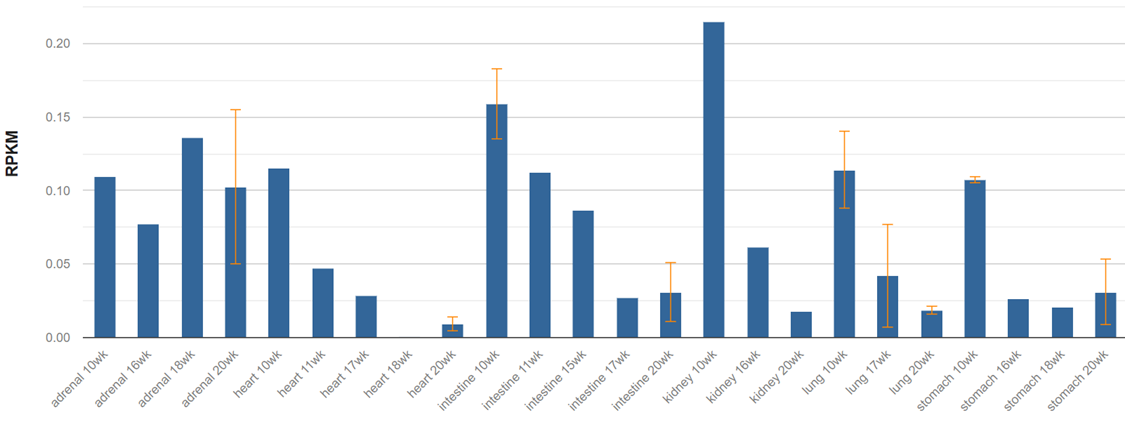
Figure 1. Tissue-specific GCM1 expression during human fetal development stages.
GCM1 aberrant expression in adult lungs is associated with poor survival in lung ADC (Figure 2A), yet it is protective in lung squamous cell carcinoma (SQC) (see Figure 2B).
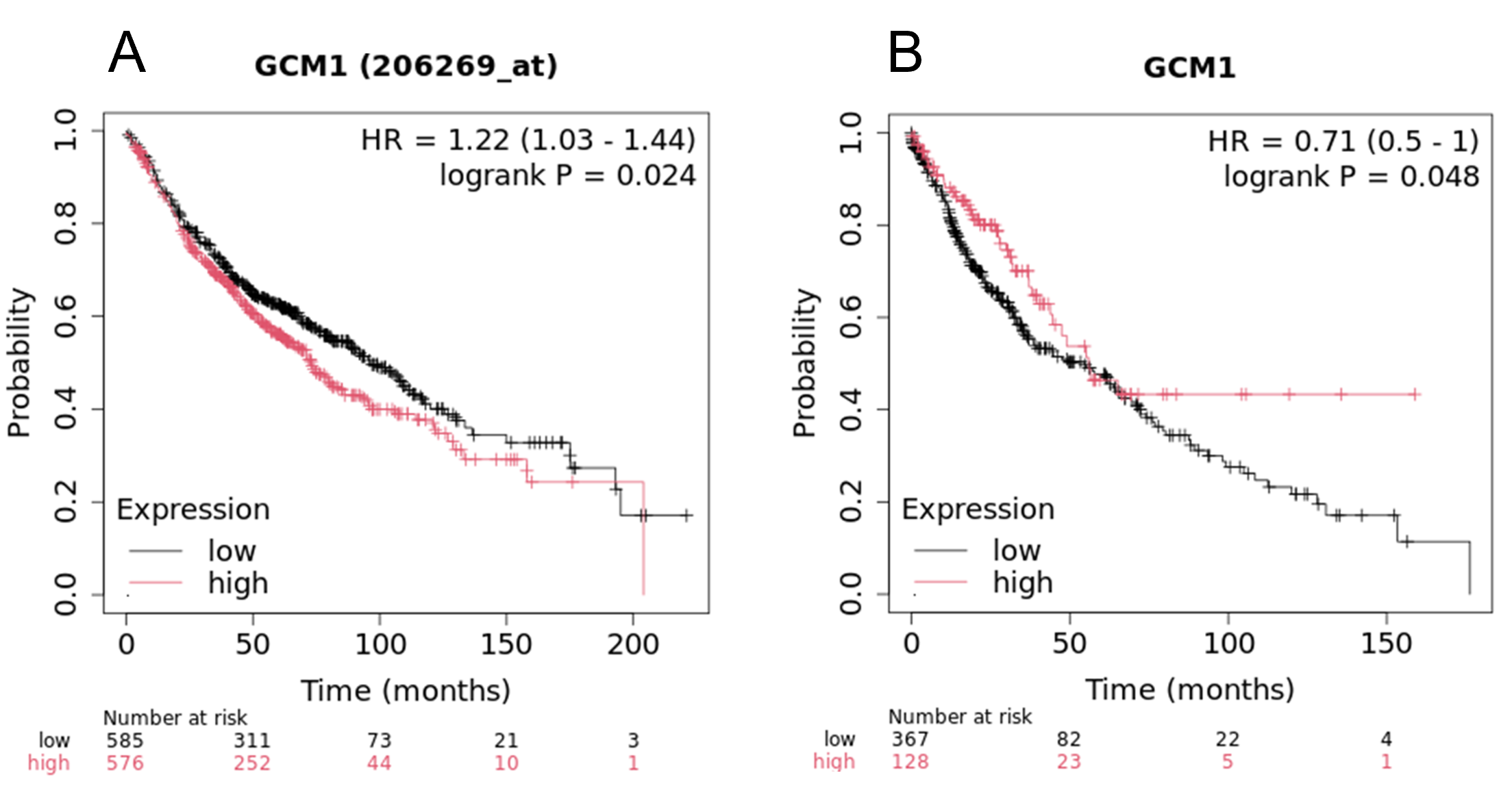
Figure 2. GCM1 overexpression in lung ADC results in poor prognosis (A), while in lung SQC it shows protective effect (B). Data generated with KM Plotter.
Pan-Cancer Trends
GCM1 is enriched in testicular cancer (Figure 3), resulting in poor prognosis (Figure 4).
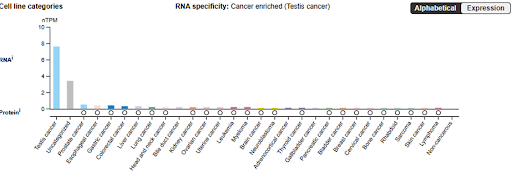
Figure 3. GCM1 is enriched especially in testicular cancer (Human Protein Atlas).
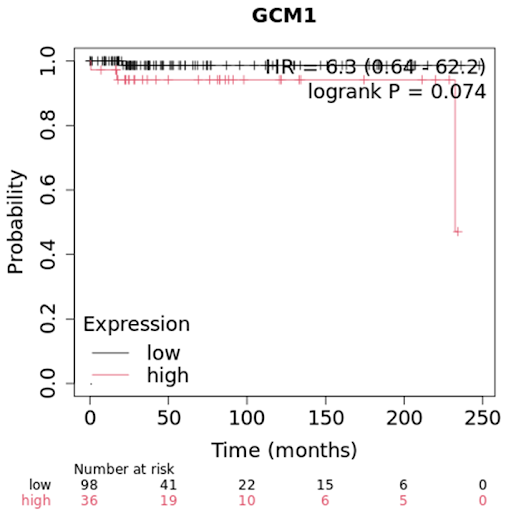
Figure 4. Testicular cancer in general has a good survival, but patients with high expression of GCM1 have substantially poorer survival in testicular germ cell tumor (HR=6.3).
Similarly negative prognosis with high expression of GCM1 are for cervical SQC carcinoma (Figure 5A), kidney renal cell carcinoma (Figure 5B), liver hepatocellular carcinoma (Figure 5C), pancreatic ductal ADC (Figure 5D), rectum ADC (Figure 5E). GCM1 mutations in stomach ADC lead to bad prognosis (Figure 5F) and show a negative survival trend in cervical SQC carcinoma (Figure 5G).
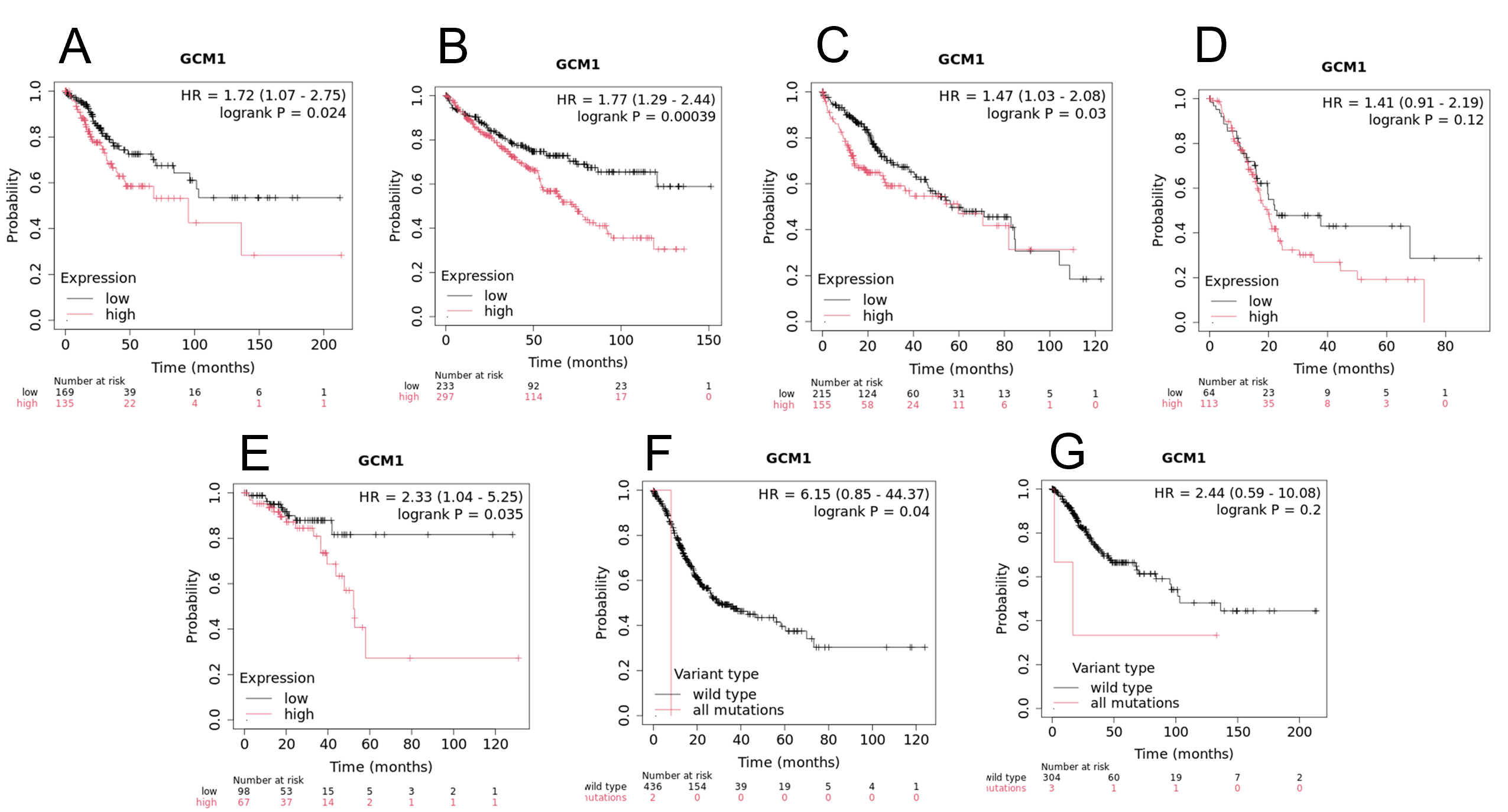
Figure 5. Poor prognosis across cancers with high expression of GCM1: cervical SQC carcinoma (A), kidney renal cell carcinoma (B), liver hepatocellular carcinoma (C), pancreatic ductal ADC (D), rectum ADC (E). GCM1 mutations in stomach ADC lead to bad prognosis (F) and show a negative survival trend in cervical SQC carcinoma (G).
On the other hand, high expression of GCM1 has a significantly protective role in ovarian cancer (Figure 6A), bladder cancer (Figure 6B), head-neck SQC carcinoma (Figure 6C), kidney renal papillary cell carcinoma (Figure 6D), pheochromocytoma and paraganglioma (Figure 6E), thyoma (Figure 6F), and thyroid cancer (Figure 6G). Mutations in GCM1 result in a good prognosis in bladder cancer (Figure 6H)
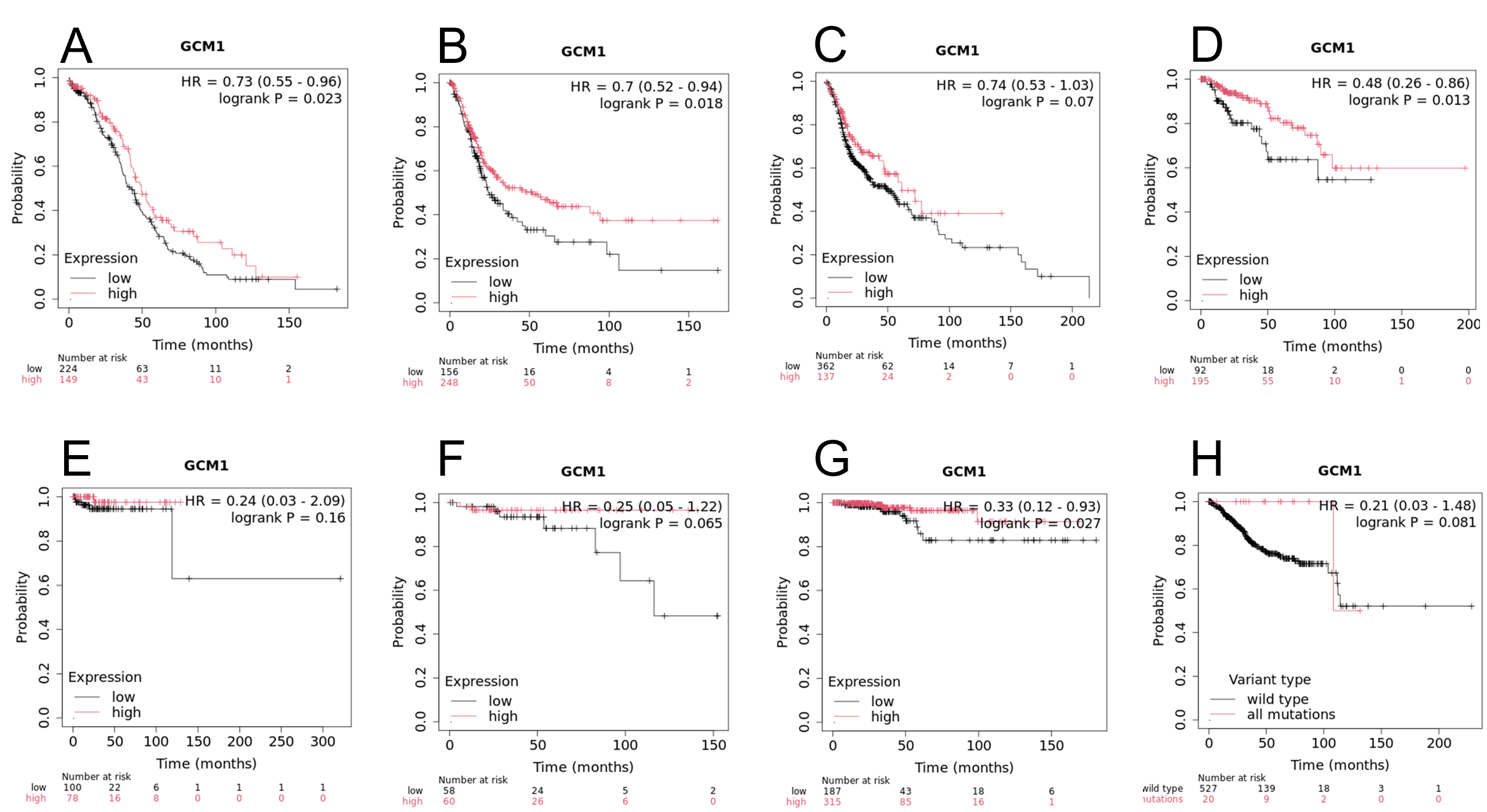
Figure 6. Good prognosis across cancers with high expression of GCM1: ovarian cancer (A), bladder cancer (B), head-neck SQC carcinoma (C), kidney renal papillary cell carcinoma (D), pheochromocytoma and paraganglioma (E), thymoma (F), and thyroid cancer (G). Mutations in GCM1 show a good prognosis trend in bladder cancer (not shown) and uterine corpus endometrial carcinoma (I).
Development and Cancer Connection
GCM1’s role in placental biology is linked to key cancer-related processes, such as angiogenesis and cellular invasion. Development and cancer share pathways that involve growth regulation, differentiation, and migration—all processes influenced by GCM1. For instance, trophoblast invasion during placental development parallels tumor cell invasion during metastasis.
Studies suggest that mutations in GCM1 affect mitochondrial function, DNA methylation, and trophoblast differentiation. Additionally, its role in non-cancer diseases like Parkinson’s and nasopharyngeal carcinoma further underscores the gene’s versatility in regulating cellular processes.
Moving Forward
The MCM project will continue providing updates on the remaining top-scoring genes linked to lung cancer. While we are not conducting experimental research on these genes at this stage, the findings serve as a foundation for future studies exploring their potential as biomarkers or therapeutic targets.
If you have any questions or comments, feel free to discuss them here.
Thank you for supporting our research!
MCM Team